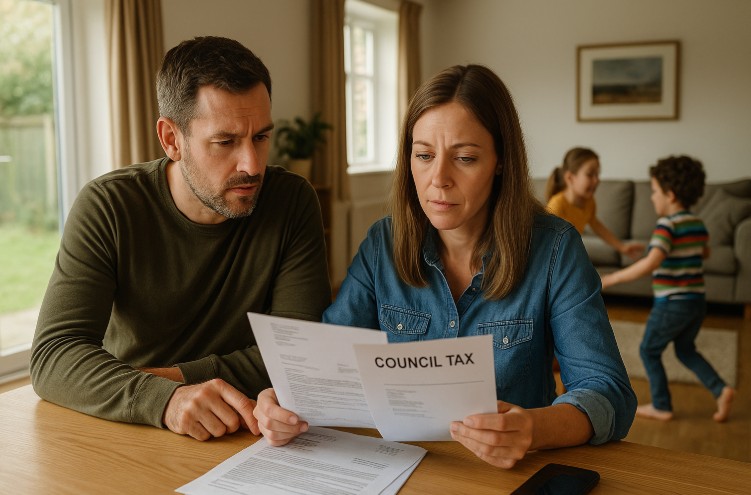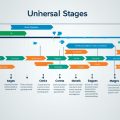Last Updated on: 19th August 2025, 04:37 am
If you are considering becoming a foster carer, one of the first questions you might ask is whether fostering affects your household bills, especially council tax. With the rising cost of living, every penny matters, and understanding your financial responsibilities is essential before you commit to fostering.
Many potential carers worry that fostering may make council tax more expensive or that they might miss out on financial support. The truth is, council tax is a household-based charge, and foster carers are usually expected to pay it just like any other residents.
However, there are important rules, exemptions, and reductions that may apply to your situation. Knowing these details can save you money and help you feel more confident about your decision to foster. This guide explains what you need to know about council tax as a foster carer in the UK.
What is Council Tax in the UK?

Council tax is a local tax that funds essential services across communities in England, Scotland, Wales, and Northern Ireland.
These services include rubbish collection, maintaining parks, supporting local policing, and keeping public services running smoothly. Every household is responsible for paying council tax, which is charged annually but usually paid in monthly instalments.
The amount you pay depends on:
- The valuation band of your property
- The number of adults living in the home
- The local council’s specific rates
Some households qualify for reductions depending on their circumstances, such as those living alone or on a low income. While the tax applies broadly, not all income is considered when assessing whether you can get help with your bill.
This is particularly important for foster carers, since your fostering allowance is treated differently to other earnings. Understanding how council tax works is the first step in identifying what discounts might apply to you as a foster carer.
Do Foster Carers Have to Pay Council Tax Like Everyone Else?
Like other households across the UK, foster carers are expected to pay council tax. Being a foster carer does not automatically exempt you from this obligation. However, your personal circumstances could influence the amount you pay, and some carers may qualify for reductions.
What Are the Key Points to Consider?
- Foster carers are not exempt from council tax purely because of their fostering role.
- Your fostering allowance is not counted as income when assessing benefits, meaning it does not increase your council tax bill.
- Eligibility for discounts depends on your household setup and financial circumstances.
For example, if you are fostering as a single adult, you may qualify for a single person discount. If another adult lives with you but has a low income, you could apply for a second adult rebate.
In addition, if you are on a low income or receive certain benefits, you might be entitled to council tax reduction. These options ensure that while you still pay council tax, the financial burden can be eased.
Are Foster Carers Eligible for Council Tax Discounts or Exemptions?

Foster carers may be able to reduce their council tax bill depending on their individual circumstances. While you do not receive an automatic exemption for fostering, there are several potential discounts and reliefs available that can help.
The main options include:
- Single Person Discount: If you are the only adult in your household, you can reduce your bill by 25 percent. This still applies if you are fostering children, as they are not counted as adults for council tax purposes.
- Second Adult Rebate: If another adult lives in your household and has a low income, you may qualify for a rebate that lowers the overall bill.
- Council Tax Reduction (CTR): If you are on a low income or receiving certain benefits, CTR may significantly lower your council tax. Your fostering allowance is not treated as income when your eligibility is calculated.
These discounts can make a meaningful difference to your household budget. While you remain responsible for paying council tax, it is reassuring to know that support exists if you qualify for it.
Can Foster Carers Get a Single Person Discount?
One of the most straightforward ways foster carers can reduce their council tax bill is through the single person discount. This discount applies when you are the only adult in your home, even if you are fostering children.
Children, regardless of whether they are biological, adopted, or fostered, are not counted as adults for council tax purposes.
This means that if you live alone and foster, you could save 25 percent on your council tax bill. The discount is applied directly by your local authority once you make an application and confirm that you are the only adult resident.
Key points to remember:
- Foster children do not count as adults in council tax calculations.
- The discount remains valid even if you have multiple children placed with you.
- You need to apply to your local authority for the discount; it is not applied automatically.
Applying for this discount is usually straightforward. Most councils allow you to complete an online form or request a paper application.
You may be asked to provide proof of your fostering arrangement, such as a fostering agreement or a letter from your fostering agency. Once approved, your council tax bill will be reduced by a quarter, making a noticeable difference to your household budget.
This discount highlights how council tax rules aim to reflect personal circumstances fairly. While foster carers must pay council tax, this reduction ensures that those caring for children alone are not unfairly penalised.
It is a helpful financial support that acknowledges the additional responsibility of fostering. For many foster carers, securing this discount can bring welcome relief and contribute to a more manageable monthly budget.
What About the Second Adult Rebate?

The second adult rebate is another form of council tax support that can benefit foster carers. This rebate is available when you share your home with another adult who is not your partner and who has a low income.
The presence of this second adult may reduce your council tax bill, even if you yourself are not entitled to other benefits.
For example, if you live with an adult child over 18 who is unemployed or on a very low income, the rebate could apply. The reduction is calculated based on the second adult’s income rather than yours.
Importantly, your fostering allowance is not considered when the local authority assesses eligibility, meaning fostering does not disadvantage you in this respect.
To apply, you would contact your local council and provide evidence of the second adult’s financial situation. This rebate can be particularly useful for foster carers living in multi-adult households where income levels vary. It ensures fairness by recognising that the ability to pay council tax depends on everyone living in the home.
Do Foster Carers Qualify for Council Tax Reduction?
Council Tax Reduction (CTR) is a means-tested benefit that can reduce or even eliminate your council tax bill if you meet certain criteria. For foster carers, this can be an important support because fostering allowances are not treated as income when councils calculate entitlement.
What Factors Determine Eligibility?
- Whether you are on a low income
- If you receive benefits like Income Support, Jobseeker’s Allowance, Universal Credit, or Employment and Support Allowance
- If you are of pension age and receive Pension Credit
Since your fostering payments are ignored in the assessment, you could qualify for CTR even if fostering is your main source of financial support.
The application process usually involves completing a form provided by your local council and supplying evidence of your financial situation.
For foster carers, CTR represents one of the most significant ways to reduce council tax liability. It provides reassurance that fostering does not add financial strain but instead is supported through fair treatment under the tax system.
How Do You Apply for a Council Tax Discount as a Foster Carer?

Applying for council tax discounts or reductions as a foster carer is a straightforward process. The first step is to contact your local council’s council tax department.
Most councils have dedicated webpages with guidance and online application forms for discounts such as single person discount or CTR.
Steps to follow:
- Check eligibility: Review the available discounts and assess which apply to your situation.
- Prepare documents: You may need a fostering agreement, proof of benefits, or evidence of household income depending on the type of discount.
- Submit application: Complete the relevant form online or by post. Ensure all required information is accurate to avoid delays.
- Await decision: Councils typically respond within a few weeks, and approved discounts will be reflected on your council tax bill.
If your circumstances change, such as another adult moving into your home or a change in income, you should notify your local council immediately. This ensures your discount remains valid. Applying promptly and accurately helps foster carers secure the support they are entitled to.
So, Do Foster Carers Really Pay Council Tax?
The simple answer is yes, foster carers do have to pay council tax. Fostering does not exempt you from the responsibility of contributing to local services. However, the financial impact can be eased significantly through discounts and reductions designed to support households in particular circumstances.
In practice, this means:
- If you live alone, you may reduce your bill by 25 percent.
- If you share your home with another low-income adult, you may receive a rebate.
- If you are on a low income or certain benefits, you may qualify for council tax reduction.
These measures show that while fostering itself does not remove the obligation, councils do recognise the importance of financial fairness.
By applying for the appropriate reliefs, you can ensure you are not paying more than necessary. Foster carers should always check with their local council for tailored advice, as local policies can vary. Ultimately, while you still pay council tax, support is available to help manage the cost.
Conclusion
Foster carers in the UK remain responsible for paying council tax, just like other households. However, the system provides several opportunities for financial relief depending on your circumstances.
Whether through the single person discount, second adult rebate, or council tax reduction, foster carers can ease the burden of council tax and ensure their household finances remain balanced.
Importantly, fostering allowances are not treated as income when eligibility for support is assessed, meaning carers are not penalised for providing children with a safe and supportive home.
If you are considering fostering, it is reassuring to know that help is available to manage household bills. By contacting your local authority and applying for the relevant discounts, you can access the support you are entitled to. Fostering is a rewarding role, and with financial guidance, it can remain sustainable.
FAQs
Do foster carers ever get full council tax exemption?
Full exemption is rare, but in certain cases of very low income combined with council tax reduction, you may not have to pay.
Is the fostering allowance counted as income for council tax?
No, fostering allowances are not counted as income when councils calculate entitlement to council tax reductions.
Can foster carers apply for council tax support if on benefits?
Yes, carers receiving benefits such as Universal Credit or Income Support can still apply for council tax reduction.
How does council tax work if I foster multiple children?
Foster children do not count as adults for council tax, so the number of placements does not increase your bill.
Do foster carers living with a partner still get discounts?
You cannot get the single person discount, but you may qualify for other reductions depending on income.
Can local councils offer extra council tax help for carers?
Some councils may have discretionary support schemes for foster carers, so it is worth checking locally.
Where can foster carers find advice about council tax relief?
The best source of advice is your local authority, though fostering agencies may also guide you.
Recent Posts




















No Comments
Leave a comment Cancel